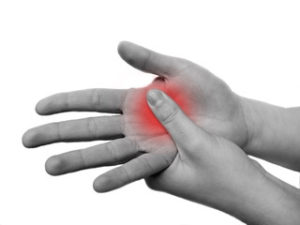Finding relief from carpal tunnel syndrome
- Posted on: Oct 15 2020
- Leave a response

What is carpal tunnel syndrome?
The median nerve is the nerve that runs from the forearm to the palm of the hand. When pressure is put on the nerve, you will feel a sensation such as numbness, tingling or pain in the wrist, hands and fingers. The pressure is caused by the thickening of the transverse carpal ligament, which is the ligament on the palm side of the wrist.
What are the symptoms?
Carpal tunnel syndrome is a progressive condition, with symptoms that start gradually. The first signs are usually numbness or tingling in the thumb, index and middle fingers that comes and goes. As it advances, you will likely notice pain in your wrist and the palm side of your hand. Some people experience weakness in their hand, causing them to drop objects.
What are the causes?
While the transverse carpal ligament thickens and compresses the carpal tunnel, it isn’t fully understood why the ligament thickens. A combination of anatomy, physiology and repetitive movement are thought to be the reason why this happens. Inflammation from rheumatoid arthritis, a wrist fracture or anything else that causes the squeezing or irritation of the median nerve can be to blame.
What are the risk factors?
If you have a narrower carpal tunnel, a dislocated wrist, nerve-damaging or inflammatory conditions, work with vibrating tools or repetitively flex your wrist, you may have a higher risk of developing carpal tunnel syndrome. Also, women are more likely than men to develop it. Obesity increases your odds as well.
How is it diagnosed?
Diagnosis consists of a thorough physical exam. Other tests such as X-rays, electromyogram and nerve conduction tests can help diagnose the syndrome.
How is it treated?
Treatment for mild to moderate carpal tunnel syndrome begins with conservative measures such as corticosteroids to reduce inflammation and swelling, behavior changes and wrist splinting. Surgery is used to correct ongoing or severe cases.
If you’re experiencing the symptoms of carpal tunnel syndrome, call us at 707.544.3400 to make an appointment.
Posted in: Carpal Tunnel Syndrome

